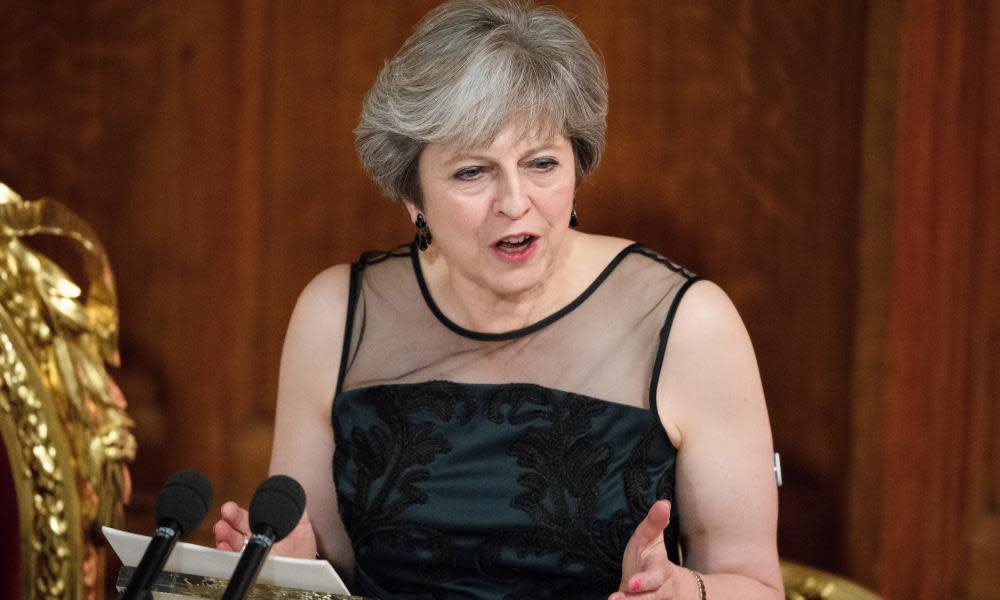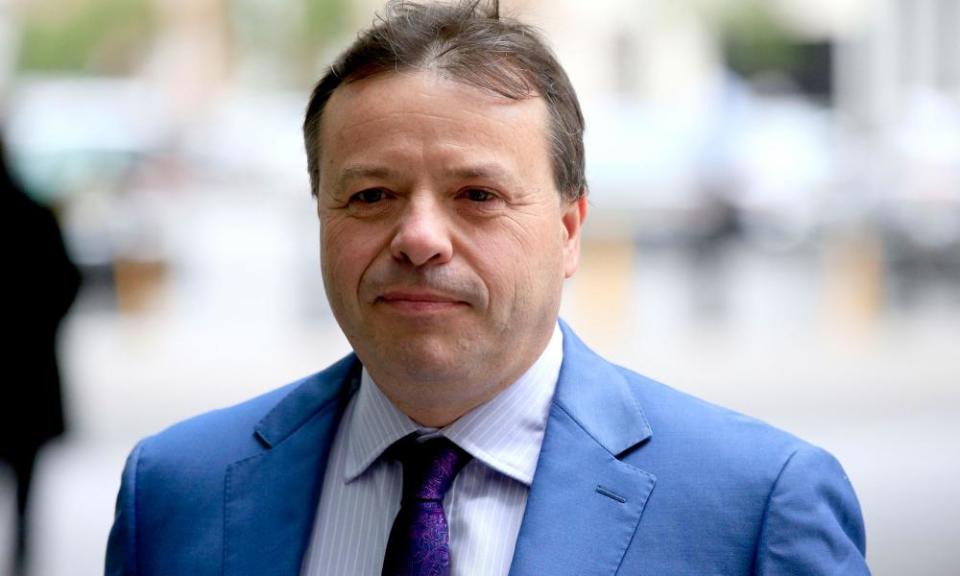My fear and fury in the eye of the Russia-Leave storm | Carole Cadwalladr

Last week, nearly one year on from the first stories about possible collusion between Donald Trump and the Kremlin, Theresa May stood up and finally talked about Russia. The country had “weaponised” information, she said. It had planted “fake stories and photoshopped images”, and it had our society and institutions in its sights.
It was a watershed moment. Finally, the government was acknowledging that Britain is not uniquely insulated from what is a global firehose of disinformation, lies and fake news – from Russia and other actors.
And then, just a few hours later, I clicked a link on Twitter. It was from Leave.EU’s official account – the Ukip-allied Brexit campaign headed by Nigel Farage. “WATCH @carolecadwalla takes a hit as the Russian conspiracy deepens.”
Leave.EU is now the subject of two Electoral Commission investigations into potentially illegal sources of funding, the first of which followed an article I wrote in March. They’ve been calling me crazy for months and I thought this would be more of the same. But it wasn’t. The video was a clip from the film Airplane!, in which a “hysterical” woman is told to calm down and then hit, repeatedly, around the head. The woman – my face photoshopped in – was me. And, as the Russian national anthem played, a line of people queued up to take their turn. The last person in the line had a gun.
So far, so weird. Here was a registered political organisation that had gained the support of millions of law-abiding, well-meaning people, promoting violence against women and threatening a journalist. It was a “joke”. A joke underpinned by violent menace. From an organisation that has also made no secret of its links to the Russian state. Leave.EU’s Twitter account retweets Russia Today and the Russian embassy as a matter of course.
Two weeks ago, the Russian ambassador to London – Alexander Yakovenko – a key figure named by the FBI as a liaison between Donald Trump’s campaign and the Kremlin – launched an attack on “unscrupulous” MPs and journalists peddling a “fake news agenda”.
Leave.EU created a meme of his words and tweeted that too. A week later, the press attache to the embassy wrote a letter to this paper, complaining I was a “bad journalist” whose “true colours” had been noted.
Silencing “bad journalists” and political opponents in Russia isn’t a joke, of course. It’s becoming less of one here too. Facebook facilitates electoral fraud. And Brendan Cox – the widower of Jo Cox– was one of the first to call out the Daily Telegraph for its front page of “Brexit mutineers”. It creates “a context where violence is more likely”, he said, highlighting another Leave.EU tweet which called them a “cancer”.
That was deleted. But the video of me being beaten stayed up. Twitter – like Facebook – is not a public space. It looks like one and we treat it like one, but it’s a private, corporate entity.
If the video had been posted outside my house, I could have physically removed it or called the police. It’s illegal in Britain to incite violence. But in the walled gardens of the internet, there was nothing anyone could do.
Theresa May only reported half the story this week. Russia’s role in the world, in Britain, is deeply sinister and troubling. But it’s not the only bogeyman here. Russia is simply exploiting a new tool, a new weapon. It’s Silicon Valley that built the weapon. In many ways, Facebook, Google, Twitter are more powerful than any nation state. And they answer to no one.
Last month, the tech giants were dragged kicking and screaming before various US house and senate committees.
In Britain, that process hasn’t even started yet. The lack of public and political pressure is an embarrassment. The paucity of press coverage disturbing. And Leave.EU’s video is just one tiny, minor example of how this works.
Disinformation takes a grain of truth and twists it. It exploits existing narratives and amplifies them. And in this case, the grain of truth? That I’m a woman. This is the weakness my opponents are seeking to exploit. That I’m reporting this story while female.
It works because it plays to our existing power structures, our existing prejudices. Men are dogged; women are crazy; gays are “bent”.

That’s what Arron Banks called Ben Bradshaw and Chris Bryant last week on Twitter – the two MPs who’ve done most to ask questions. Guilty of legislating while homosexual.
Most people thought Leave.EU’s video was vile. Hundreds of nice, kind, well-meaning strangers offered me messages of support. They reported it. Repeatedly. And still it stayed up.
It was clearly unacceptable. And yet it was accepted. It remained on a “public” forum – beyond the reach of any law enforcement agency, immune to public opprobrium – for 42 hours. And it did its job: Leave.EU launders extremist content. It tests the ground. It gets unpalatable ideas out into the mainstream – racism, islamophobia, homophobia, death threats to journalists – and it normalises them.
It did its job: it has coarsened public discourse another inch. It has opened the door for other journalists to be threatened on other stories. It has shown you can make fascistic bullyboy threats. And get away with it.
Maybe you should be less noisy, a well-meaning colleague suggested. As if I’d committed the journalistic equivalent of wearing a short skirt and asking to get raped. You risk looking biased, he said.
I’m not biased. I’m furious. I’m boiling with rage. The bullies are winning. Lies are winning. This assault on truth, justice, democracy is winning. And we can’t even see it. That video – created by a British political organisation, facilitated by a global technology platform – will have an impact on other women. On other journalists. It’s another line crossed.
“We know what you are doing,” Theresa May said of Russia. It’s not enough to know. We need to do something about it. We need to be not OK with any of it. The frog is boiling.

 Yahoo News
Yahoo News 
